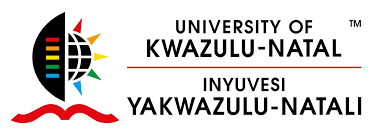Admissions Western Cape Education for Non-Citizens 2027 – A Detailed Guide
The Western Cape Education Department (WCED) provides educational opportunities to both citizens and non-citizens within the province. For non-citizens looking to apply for schooling in the Western Cape in 2027, there are specific guidelines and processes to follow. This guide outlines the necessary steps, eligibility requirements, and important dates for admissions for non-citizens to schools in the Western Cape.
Who Qualifies as a Non-Citizen?
In the context of the Western Cape Education Department, a non-citizen includes:
- Foreign nationals who are not South African citizens but are legally residing in South Africa.
- Children of foreign diplomats or international organizations.
- Refugees or asylum seekers who have been granted refugee status or are awaiting asylum status.
Non-citizens must meet certain residency requirements to qualify for admission to schools in the Western Cape. These include providing proof of legal residency or visa status in South Africa.
Admission Requirements for Non-Citizens
To ensure a smooth application process, non-citizens must meet specific admission criteria for enrollment in schools in the Western Cape. Below are the key requirements:
1. Proof of Legal Residency:
- Non-citizens must present valid proof of residency in South Africa. This can include:
- Permanent Residency Permit or Temporary Residency Visa.
- Refugee status or Asylum Seeker documentation.
- Visa for study purposes (for students who are in South Africa for educational purposes only).
- Students applying from other countries must show evidence of legal entry and permission to stay in South Africa.
2. Proof of Identity:
- A passport or national ID from the home country is typically required.
- For students already in South Africa, a South African birth certificate (if applicable) or temporary identity document is needed.
3. Proof of Residential Address:
- Non-citizens must provide proof of address within the Western Cape. This may include:
- Utility bills (e.g., water or electricity bill) in the name of the applicant or their guardian.
- A signed lease agreement or a letter from the landlord.
4. School Reports:
- Non-citizens applying for Grade 1–12 will need to submit the most recent school report from their current or previous school.
- For students applying to Grade 1 and not yet in formal schooling, a report from the preschool or daycare where they previously attended would be necessary.
- Report translations may be required if the original documents are not in English or one of the official languages of South Africa.
5. Health and Medical Records:
- Some schools may require a medical report or vaccination record as part of the application process. This is especially true for younger students.
- Make sure to submit any relevant health documentation and vaccination history.
6. Age Criteria:
- Ensure that the student meets the appropriate age requirement for the grade they are applying for. For instance, students must typically be 6 years old by the start of the school year to apply for Grade 1.
Step-by-Step Application Process for Non-Citizens in 2027
The admissions process for non-citizens follows the same general process as for citizens but requires additional documentation. Below is the step-by-step guide for applying for school admission in the Western Cape:
Step 1: Find a School in the Western Cape
Start by identifying the school you wish to apply to. You can use the Western Cape Education Department’s official website to search for schools in your area. Schools often have specific catchment areas, so make sure that the school you’re applying to serves your area of residence.
Some resources include:
- The Western Cape Education Department (WCED) website: https://www.westerncape.gov.za/education
- Public and independent schools: Check whether the school accepts non-citizen students.
Step 2: Obtain and Complete the Application Form
Once you’ve identified the school, obtain the admission application form from the school directly or from the WCED website. The form typically requires information about:
- The student’s personal details (name, date of birth, nationality, etc.)
- The guardian’s or parent’s contact details
- The educational history of the student (previous schools, grades, subjects, etc.)
- Desired grade and any subject choices (for high school students)
Step 3: Prepare the Required Documents
Ensure that all necessary documents are gathered before submitting the application. These documents generally include:
- Valid passport or ID card.
- Proof of residency in the Western Cape (e.g., utility bills or a lease agreement).
- Proof of legal residency (e.g., permanent residency permit, refugee status, or study visa).
- Latest school report or transcripts.
- Medical records or vaccination history (if required).
- Completed application form.
Ensure all documents are certified copies if required. If any documents are not in English, have them translated by a certified translator.
Step 4: Submit the Application
Submit the completed application form along with all the supporting documents to the school’s administrative office. Some schools may allow you to submit the application online or via email, so check the school’s specific submission process.
Be sure to submit your application before the school’s deadline. The application window typically opens in mid-2024 for 2027 admissions and closes by the end of 2024.
Step 5: Await Notification of Admission
After submitting your application, the school will review the documents and notify you of their decision. If successful, you will receive an acceptance letter or placement confirmation. If there are no spaces available, you may be placed on a waiting list.
Important: Some schools may conduct interviews, especially for older students or if there are language barriers. These interviews may assess the student’s academic performance and language proficiency.
Step 6: Complete the Enrollment Process
Once you receive an acceptance letter, the next step is to complete the enrollment process. This may include:
- Paying any required registration fees.
- Submitting medical forms (if not done earlier).
- Purchasing school uniforms and textbooks.
- Attending an orientation session for new students.
Important Dates for 2027 Admissions
Here are some key dates to keep in mind for non-citizen admissions for the 2027 academic year:
- Application Opening Date:
Typically begins in mid-2024. Check with the school for specific dates. - Application Deadline:
Applications for 2027 admission generally close by late 2024 (usually in October or November). - Notification of Acceptance:
Schools will typically notify applicants of their admission status by December 2024. - School Year Begins:
The school year usually begins in January 2027, but dates can vary slightly depending on the school.
Tuition Fees and Financial Assistance
Tuition fees vary depending on the school, and non-citizens may face different fee structures than citizens. Some public schools offer lower tuition fees for non-citizens, while private or independent schools may have higher fees.
- Public Schools: Non-citizens may pay slightly higher fees, depending on residency status and the school’s policies.
- Private Schools: Fees for private schools can be significantly higher, and non-citizens may face additional charges.
Financial Assistance and Scholarships:
While financial aid is often available for South African citizens, non-citizens may have fewer options for financial assistance. However, it’s still worth inquiring with the school or the Western Cape Education Department about any available bursaries, discounts, or payment plans.
For non-citizens in the Western Cape looking to secure a place in a public or private school for 2027, understanding the admission requirements and application process is crucial. By following the steps outlined above and ensuring that all necessary documents are provided, you can increase your chances of a smooth and successful application.
If you have questions or need further guidance, always feel free to reach out to the Western Cape Education Department or directly to the school where you wish to apply.
For more information, visit the official Western Cape Education Department (WCED) website:
https://www.westerncape.gov.za/education


